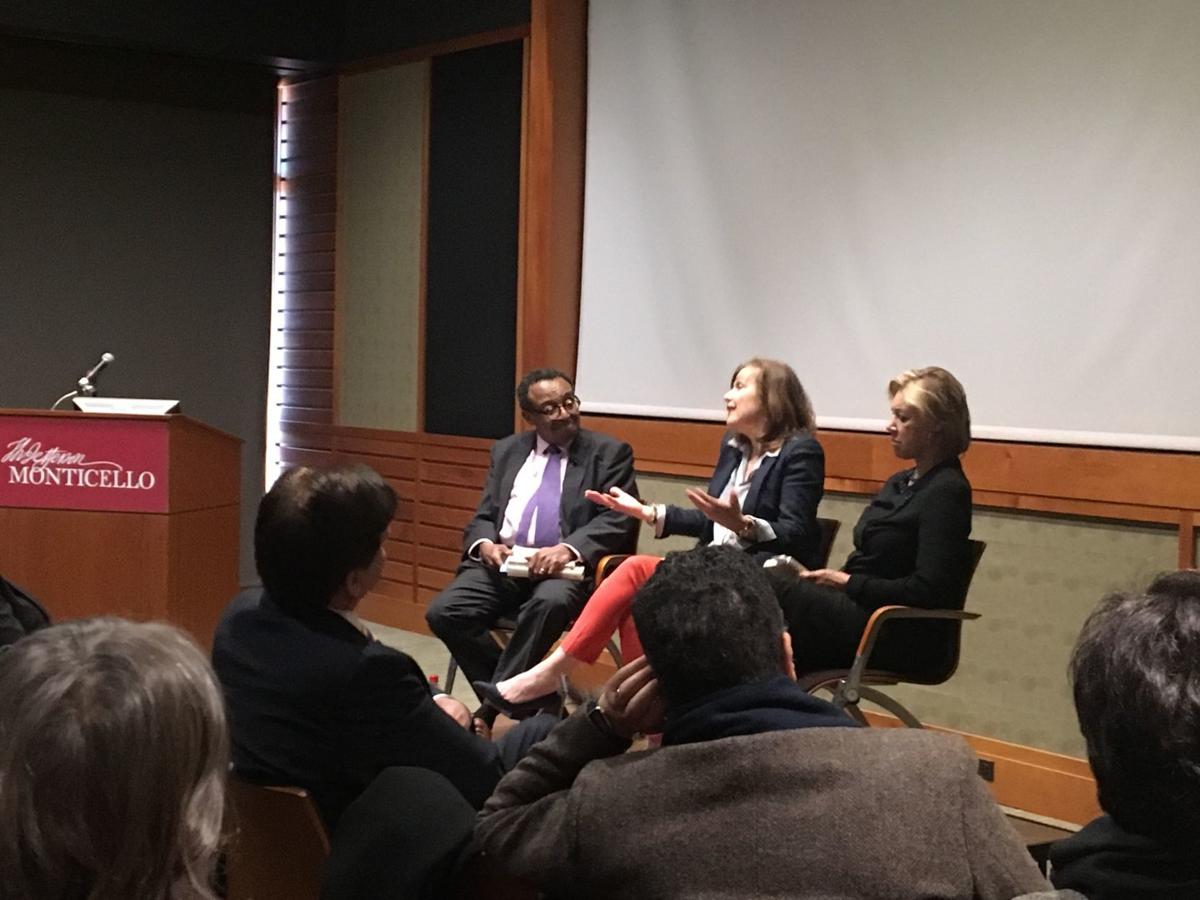‘Passing’ led to new lives and safetyPosted in Articles, History, Media Archive, Passing, United States on 2020-03-07 00:46Z by Steven |
‘Passing’ led to new lives and safety
The Daily Progress
Charlottesville, Virginia
2020-02-08
Bryan McKenzie, News Reporter
 Bryan McKenzie/The Daily Progress File Catherine Kerrison explains to moderator Clarence Page and participant Lisa Page the mystery of what happened to Thomas Jefferson’s daughter Harriet after she ‘passed’ into white society. The three participated in a Monticello program on ‘passing’ on Saturday. |
For more than two centuries, many African Americans left their families and identities behind, crossing into white society as a way of securing freedom, self-preservation and economic advancement, two university professors who have researched the phenomenon told a Monticello audience on Saturday.
Known as “passing,” many African Americans and Americans of mixed race chose to present themselves as white in order to attain privileges, freedoms and security. Passing often meant turning their backs on family, friends and hometowns, sometimes for the rest of their lives.
Lisa Page, co-editor of “We Wear The Mask: 15 True Stories of Passing in America,” joined Catherine Kerrison, author of “Jefferson’s Daughters: Three Sisters, White and Black, in a Young America” in the program. The panel is part of a slate of events and exhibitions by Monticello during Black History Month…
Read the entire article here.
